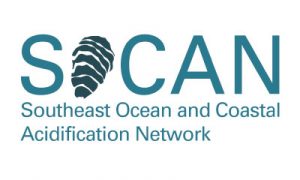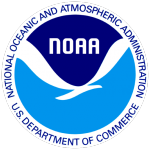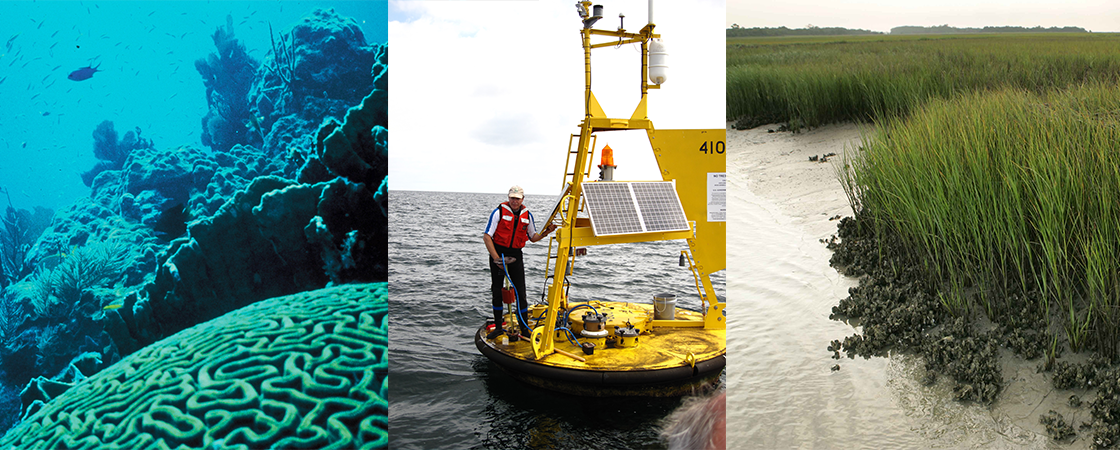Ocean acidification is a term that describes the change in the chemistry of ocean waters, largely due to increased carbon from the atmosphere entering the ocean. Acidification can also occur in coastal regions from changes to river flow (e.g. from increased precipitation) and nutrient inputs. Increased nutrients from fertilizers and runoff can cause eutrophication, which is another mechanism by which carbon dioxide concentrations can increase in coastal waters. These changes in ocean and coastal water chemistry can affect the entire marine ecosystem. It is necessary to identify the broader impacts of acidification in the Southeast so we can adapt to changes in ocean chemistry and its potential effects on marine ecosystems.
 About SOCAN
About SOCAN
Formed in February 2015, the Southeast Ocean and Coastal Acidification Network (SOCAN) is an interdisciplinary network of scientists, resource managers, and industry, non-profit, and government representatives dedicated to supporting and encouraging discussions on ocean and coastal acidification in the Southeast.
Program Objectives
Synthesize and disseminate the most recent scientific, technical and socioeconomic information relevant to species and ecosystems that could be affected by acidification;
Identify knowledge gaps;
Set regional priorities for monitoring and research;
Collaborate in the development of a Southeast regional acidification monitoring network;
Encourage and support scientific research collaborations and data sharing; and
Respond to stakeholder needs.
Contact Us
We welcome inquiries from interested parties or potential new partners.
Leslie Wickes – Program Coordinator
Email: lesliewickes@secooraorgpact.wpengine.com

Funding for this project is provided by the National Oceanic and Atmospheric Administration to the Southeast Coastal Ocean Observing Regional Association (SECOORA).
